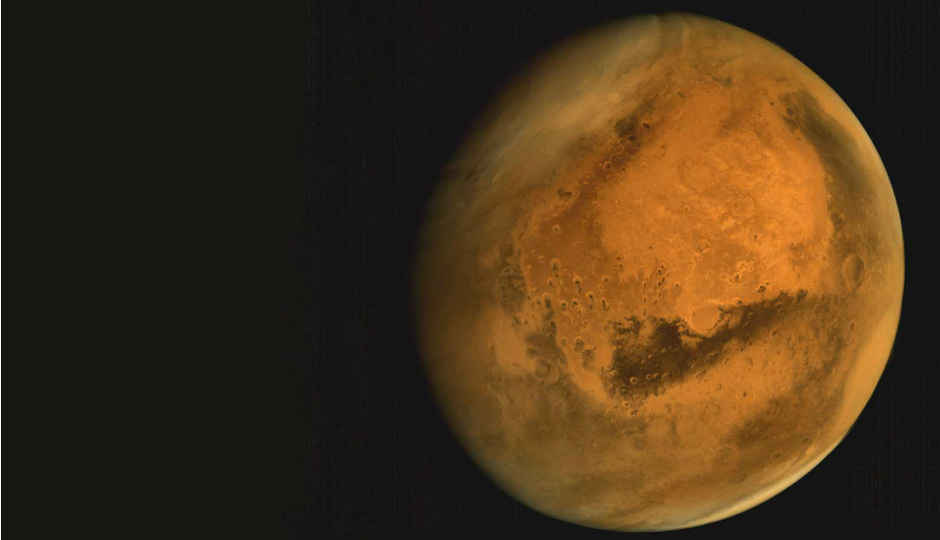Scientists tell NASA to dream big to find ancient life on Mars
 Scientists have covered a lot of ground when it comes to finding hints of ancient life on Mars and it seems that every discovery is making them hungry for more. US-based rocket engineers have urged NASA to ‘dream big’ and push their next Mars mission, scheduled for 2020, to the limits of technological performance so that their new robot rover visits a maximum number of sites to increase chances of uncovering signs of ancient life on the red planet. According to a report in The Guardian, by this way, rock samples that could have fossils would then be left in caches on the planet which can be collected several years later and returned to Earth in a complex series of robot “sample return” missions costing more than $10 billion. “The community prefers a mega-mission. If we are going to do a sample return, it has to be a sample cache for the ages,” Bethany Ehlmann, a planetary scientist at the California Institute of Technology, was quoted as saying. The red planet has almost has no atmosphere, no liquid water but consists of intense radiation which is harmful for humans. “We now think the likelihood of life existing on its surface is slim to non-existent,” Matthew Golombek, of Nasa’s Jet Propulsion Laboratory in Pasadena, California, was quoted as saying. According to the report, the scientists are concentrating on rocks formed in watery environments billions of years ago, when the planet was reportedly Earth-like. These rocks may have preserved remnants of any life that flourished before the planet’s atmosphere was destroyed. The rover is expected drill into promising sediments and place them in test tubes that will then be dumped in caches. The report says that the original proposal was to create one cache but, at a meeting this month, scientists pressed for several to be created. Around 2026, Nasa plans to launch a follow-up mission that would land a rocket launcher and new robot craft, called Fetch Rover, on Mars. The Fetch Rover will be collect the caches and load them on the rocket which will deliver them to an orbiter to carry the samples back to Earth. “We will have the strictest quarantine conditions enforced when we collect and store those samples. It will be worth the effort and expense, however. This is going to be our best chance of finding out if life evolved independently on another world and that life here is not just a lucky accident,” Golombek noted.
Scientists have covered a lot of ground when it comes to finding hints of ancient life on Mars and it seems that every discovery is making them hungry for more. US-based rocket engineers have urged NASA to ‘dream big’ and push their next Mars mission, scheduled for 2020, to the limits of technological performance so that their new robot rover visits a maximum number of sites to increase chances of uncovering signs of ancient life on the red planet. According to a report in The Guardian, by this way, rock samples that could have fossils would then be left in caches on the planet which can be collected several years later and returned to Earth in a complex series of robot “sample return” missions costing more than $10 billion. “The community prefers a mega-mission. If we are going to do a sample return, it has to be a sample cache for the ages,” Bethany Ehlmann, a planetary scientist at the California Institute of Technology, was quoted as saying. The red planet has almost has no atmosphere, no liquid water but consists of intense radiation which is harmful for humans. “We now think the likelihood of life existing on its surface is slim to non-existent,” Matthew Golombek, of Nasa’s Jet Propulsion Laboratory in Pasadena, California, was quoted as saying. According to the report, the scientists are concentrating on rocks formed in watery environments billions of years ago, when the planet was reportedly Earth-like. These rocks may have preserved remnants of any life that flourished before the planet’s atmosphere was destroyed. The rover is expected drill into promising sediments and place them in test tubes that will then be dumped in caches. The report says that the original proposal was to create one cache but, at a meeting this month, scientists pressed for several to be created. Around 2026, Nasa plans to launch a follow-up mission that would land a rocket launcher and new robot craft, called Fetch Rover, on Mars. The Fetch Rover will be collect the caches and load them on the rocket which will deliver them to an orbiter to carry the samples back to Earth. “We will have the strictest quarantine conditions enforced when we collect and store those samples. It will be worth the effort and expense, however. This is going to be our best chance of finding out if life evolved independently on another world and that life here is not just a lucky accident,” Golombek noted. from Latest Technology News https://ift.tt/2qbhmO2

No comments